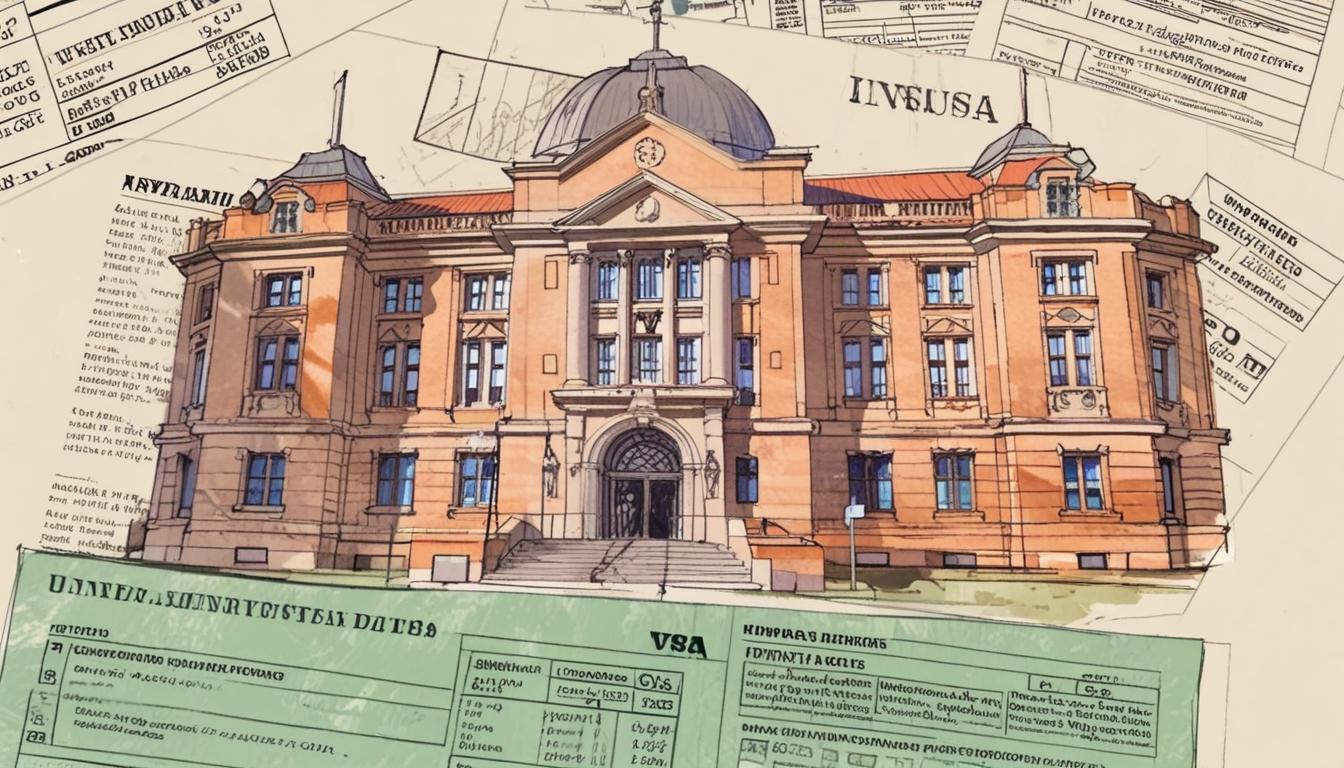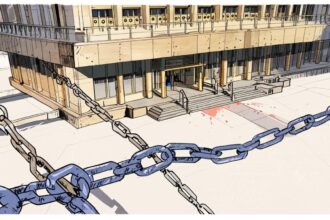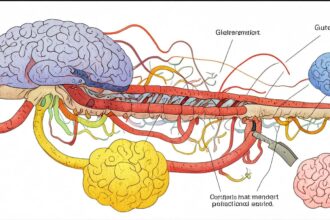Universities across New South Wales and the Australian Capital Territory are experiencing severe financial difficulties due to government-imposed limits on international student enrolments. The resulting revenue losses have forced widespread staff layoffs and cuts to course offerings, prompting criticism of university management and calls for governmental inquiry into university governance.
Universities across New South Wales (NSW) and the Australian Capital Territory (ACT) are grappling with growing financial difficulties as deficits and revenue losses mount, triggering widespread cuts to staff and course offerings. These challenges are largely attributed to recent government-imposed limitations on international student enrolments, a vital revenue source for many tertiary institutions.
The federal government initially proposed international student caps in August 2024, aiming to reduce the number nationwide to 270,000 from the 323,000 commencing enrolments recorded in 2023. The Senate blocked these caps in December 2024, but the government circumvented this by introducing Ministerial Direction 111. This directive implemented a “slow-go” visa processing system, classifying student visa applications into priority tiers. Once 80 per cent of the intended enrolment cap is reached by an institution, visa applications are downgraded to a lower priority, significantly delaying processing.
In the financial year 2023-2024, approximately 60,000 fewer higher education visas were granted, intensifying the difficulties for universities reliant on international student fees. Furthermore, the volume of visa appeals through the Administrative Review Tribunal (ART) has surged, with 25,854 cases lodged and a considerable financial burden imposed on applicants, who pay about $3,496 per appeal. The backlog disproportionately affects international students, swelling from around 14.5 per cent of the ART backlog in June 2023 to nearly 61.7 per cent by February 2025.
These visa restrictions have had a pronounced impact on university finances and operations. The University of Technology Sydney (UTS) recently announced $100 million in budget cuts, leading to the elimination of 400 staff positions, including 150 academic roles – approximately nine per cent of its workforce. Following these cuts, UTS Provost Vicki Chen resigned. The National Tertiary Education Union (NTEU) criticised university leadership, citing “serious management failures” and excessive workloads affecting staff wellbeing. Sarah Attfield, President of the NTEU UTS Branch, told Honi Soit, “Staff mental health and morale are at an all-time low. Failures in consultation and transparency have hamstrung staff, leaving them increasingly unable to identify and challenge oversights made by leaders so far removed from the day-to-day functions of the university.” Despite the cuts, UTS recorded a record intake of 3,257 international students for Semester 2, 2025, reported the Australian Financial Review.
At Macquarie University (MQ), a fourth consecutive year of financial deficits culminated in an $81 million shortfall in 2023-2024. This financial strain has resulted in severe reductions in staff and course offerings, negatively affecting both students and staff. MQ has a high student-to-staff ratio of 27:1, with 30,951 equivalent full-time student loads (EFTSL) and 1,133 academic staff in 2023. Students have reported the discontinuation or merging of courses, including fieldwork-intensive units like Active Environments ENVS3241, which previously involved a two-week trip to New Zealand. Additionally, the university’s School of Natural Sciences may reduce its fleet of 64 vehicles used for field research and teaching by up to half, which students and staff fear will degrade the quality of practical education. MQ has stated that no courses have been cut yet but confirmed some courses were not listed in current admissions. The NTEU has petitioned against proposed cuts to arts courses and an ‘expression of interest’ teaching allocation system, which could undermine academic job security. The university’s financial difficulties are linked to debts exceeding $800 million accrued through large capital projects, including a university hospital, rather than teaching or research.
The University of Wollongong (UOW) is also enacting cuts to address its $35 million loss. Plans include cutting up to 185 non-academic staff—ten per cent of its workforce—and consolidating faculties and schools to save over $20 million. UOW cited reduced international onshore student enrolments as a key factor in its deficit. Hanzel-Jude Pador, President of the Wollongong University Students Association, voiced concerns over job losses and diminished student services, juxtaposed against the university’s initiative to open a new campus in Riyadh, Saudi Arabia. UOW’s Riyadh campus forms part of Saudi Arabia’s Vision 2030 plan, with the university highlighting that funds for the overseas operation would come from global ventures rather than domestic revenue. UOW also operates a satellite campus in Dubai.
Western Sydney University (WSU) faces a looming deficit of $79 million and plans to cut between 300 and 400 jobs. Vice-Chancellor George Williams attributed financial strains to international student caps and shifts in student behaviour, including students undertaking fewer courses, often due to cost-of-living pressures. WSU’s student demographic includes a high proportion of students from low socioeconomic backgrounds, which makes the university particularly vulnerable to financial impacts from lost international student revenue. Williams has frozen his own salary and cut senior executive positions by 25 per cent alongside other expense restrictions.
Meanwhile, the Australian National University (ANU) reported a substantial $400 million deficit, prompting Vice-Chancellor Genevieve Bell to announce a ‘Renew ANU’ restructuring initiative. This scheme includes a Voluntary Separation Scheme encouraging staff to voluntarily leave, with plans to cut seven schools to six and reduce approximately 650 jobs to save around $100 million. Staff morale is visibly affected; a vote of no confidence against Bell and Chancellor Julie Bishop in March revealed over 95 per cent of participating staff lacked confidence in their leadership. The NTEU ACT Division Secretary, Dr Lachlan Clohesy, criticised the university’s budgeting errors and managerial decisions tied to financial cuts and job losses. ANU Students Association Education Officer Rosie Patton also expressed concern, remarking, “There’s a strong feeling that the university only cares about the bottom line and in the process has forgotten what’s most important, and that’s being a place for students to learn.”
The NTEU National President Alison Barnes linked these crises to broader governance issues at public universities nationwide and welcomed a Senate inquiry announced on 29 January 2025, chaired by Senator Tony Sheldon, focusing on university governance. However, the inquiry’s timeline has been extended from an original 4 April deadline to 1 August 2025, reflecting delays common among over 60 overdue Senate inquiries. The ABC reported that such delays can stall critical policymaking.
Stevie Howson, NTEU NSW Acting Secretary, told Honi Soit, “What we’re seeing are failures of executives to listen to staff concerns and expertise, severe financial and structural mismanagement, and decision making which lacks transparency. This is ultimately damaging to the public institutions our university leaders should be serving.”
The future financial landscape for Australian universities appears uncertain. The Coalition has proposed an even stricter policy to cap international student enrolments at 240,000 nationwide—a reduction from Labor’s 270,000 target—alongside a substantial increase in visa application fees for institutions within the Group of 8.
Peter Dutton justified the proposal on grounds of addressing the housing market, stating, “My absolute priority is to get this housing mess sorted out.” However, research from the University of South Australia challenges the assertion that international students exacerbate housing affordability issues. Lead researcher Michael Mu explained, “We found really no statistical relationship between international members and the housing crisis.” Their study noted that an increase of 10,000 international students correlated with a $1 decrease in weekly rent prices when accounting for rental inflation and vacancy rates. International education remains a significant export sector for Australia, generating $50.5 billion in the 2023-2024 financial year.
Universities Australia CEO Luke Sheehy cautioned that the proposed cuts would “take a sledgehammer to one of the nation’s biggest income generators.” He warned that such measures would place additional financial strain on universities, particularly in regional and outer metropolitan areas. Sheehy emphasised, “International education delivered more than half of Australia’s GDP growth in 2023 and almost single-handedly kept us out of recession… Students make up less than six per cent of the national rental market. The real solution is more homes, not fewer students.” He further warned of the long-term damage to Australia’s education system’s global standing should international students seek education elsewhere.
Collectively, these universities are confronting a confluence of challenges stemming from government policy, financial deficits, and institutional management decisions. The unfolding situation is prompting significant structural changes and disruptions to university communities across NSW and the ACT.
Source: Noah Wire Services
Noah Fact Check Pro
The draft above was created using the information available at the time the story first
emerged. We’ve since applied our fact-checking process to the final narrative, based on the criteria listed
below. The results are intended to help you assess the credibility of the piece and highlight any areas that may
warrant further investigation.
Freshness check
Score:
8
Notes:
The narrative discusses recent events, such as government policies on international student caps and their impacts in the financial year 2023-2024. However, some details might be subject to change, such as the Senate inquiry timeline.
Quotes check
Score:
9
Notes:
Quotes are attributed to specific individuals, such as Sarah Attfield, Stevie Howson, and Luke Sheehy. While the original sources of these quotes are not directly linked, they appear to be recent and contextually relevant.
Source reliability
Score:
7
Notes:
The narrative appears to draw from reputable sources like the Australian Financial Review and ABC, but it does not specify all sources. The narrative is well-structured, suggesting credible research but lacks explicit sourcing for some claims.
Plausability check
Score:
9
Notes:
The claims about financial strains and university restructuring align with public knowledge about the sector’s challenges in Australia. While the severity of some impacts might vary, the overall scenario is plausible and consistent with broader trends.
Overall assessment
Verdict (FAIL, OPEN, PASS): PASS
Confidence (LOW, MEDIUM, HIGH): HIGH
Summary:
The narrative is well-supported by plausible events and quotes, though it could benefit from more explicit sourcing. The overall assessment indicates a solid foundation of factual information, with some minor considerations for ongoing developments.













